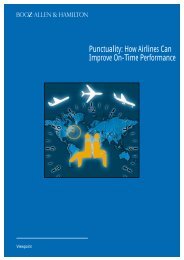The sentence
The sentence
The sentence
Create successful ePaper yourself
Turn your PDF publications into a flip-book with our unique Google optimized e-Paper software.
<strong>The</strong>re are some children at the door. <strong>The</strong>y want to see Jimmy.<br />
<strong>The</strong>re’s a van stopping outside. It’s someone delivering something.<br />
Combinations with ‘there’ + ‘be’<br />
1. <strong>The</strong>re is, there are, there was and there were are the most common combinations:<br />
<strong>The</strong>re’s a phone call for you. <strong>The</strong>re was a phone call for you this morning.<br />
2. We also use there with different tenses, for example:<br />
perfect tenses: <strong>The</strong>re has (there’s) been an accident.<br />
He said there had (there’d) been an accident.<br />
<strong>The</strong>re haven’t been many earthquakes in England.<br />
Future tenses: <strong>The</strong>re will (there’ll) be a letter for me tomorrow.<br />
<strong>The</strong>re’ll have been an answer by Friday.<br />
3. <strong>The</strong>re also combines with seem to be and appear to be:<br />
<strong>The</strong>re seems to be a mistake in our bill. <strong>The</strong>re appears to be no one in.<br />
D. Verbs related in meaning to ‘be’<br />
Certainly and uncertainty with ‘be’, ‘seem’, etc.<br />
1. <strong>The</strong>se verbs have nearly the same meanings as be:<br />
appear, feel, look, seem, smell, sound, taste, and also chance/happen/prove to be.<br />
2. When we are certain about something, we use be or an ordinary verb:<br />
He is ill. He knows the answer.<br />
3. When we are uncertain about something, we can use ‘modal verbs’:<br />
He may/might/could be ill. He may/might/could know the answer.<br />
Or we can use verbs related to be:<br />
He is ill. → He seems/appears (to be) ill.<br />
He knows the answer. → He seems/appears to know the answer.<br />
He was rich. → He seemed/appeared (to be) rich.<br />
He is working hard → He seems/appeared to be working hard.<br />
He was working hard. → He seemed/appeared to be working hard.<br />
He has been hurt. → He seems to have been/appears to have been hurt.<br />
‘To be’ or not ‘to be’?<br />
1. We can leave out to be after appear and seem in the simple present and simple past:<br />
He appears/seems (to be) ill. He seemed (to be) a fool.<br />
2. We usually include to be before adjectives like afraid, asleep and awake:<br />
<strong>The</strong>y seem to be asleep. He seems to be afraid.<br />
3. We cannot use to be after feel, look, smell, sound or taste:<br />
He feels hot. You look cold. (Not *He feels to be hot.* *You look to be cold.*)<br />
‘Process verbs’ related to ‘be’ and ‘become’<br />
1. Process verbs describe a change in state: When I asked him about it, he grew angry.<br />
Typical process verbs are: become, come, fall, go, get, grow, run, turn, wear.<br />
65




